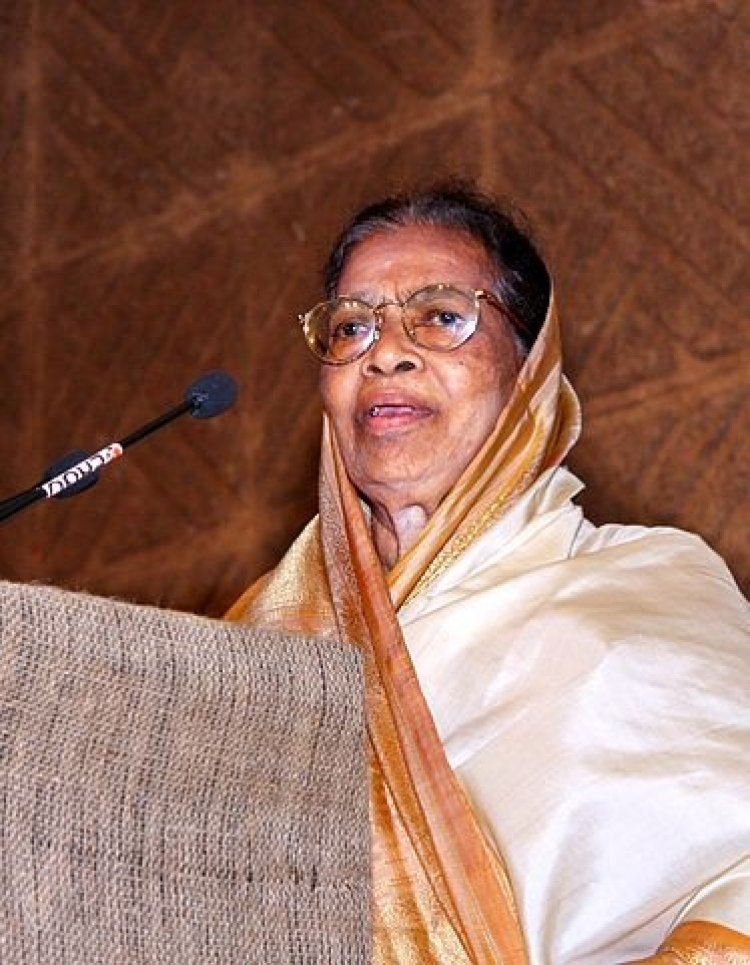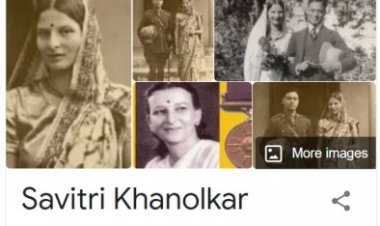Why Fathima Beevi Had Been So Popular Till Now?
Who is the first Muslim Supreme Court judge? ,

M. Fathima Beevi is a former judge of the Supreme Court of India. Appointed to the apex Court in 1989, she became the first female judge to be a part of the Supreme court of India, and the first Muslim woman to be appointed to any of the higher judiciaries in the country.
On her retirement from the court, she served as a member of the National Human Rights Commission and later as the Governor of the Indian state of Tamil Nadu from 1997 to 2001.
M.Fathima Beevi was born on 30 April 1927 at Pathanamthitta, Travancore, now in the Indian State of Kerala, as the daughter of Annaveettil Meer Sahib and Khadeeja Beevi.
She did her schooling in a Town school and Catholicate High School, Pathanamthitta and got her B.Sc in Chemistry from University College, Thiruvananthapuram. She obtained her B.L. from Government Law College, Thiruvananthapuram.
Beevi was enrolled as an Advocate on 14 November 1950. She topped the Bar Council exam in 1950. She began her career in the lower judiciary in Kerala. She was appointed as the Munsiff in the Kerala Sub-ordinate Judicial Services in May 1958.
She was promoted as the Sub-ordinate Judge in 1968 and as the Chief Judicial Magistrate in 1972, as District & Sessions Judge in 1974. She was further appointed as the Judicial Member of the Income Tax Appellate Tribunal in January 1980. She was then elevated to the High Court as a Judge on 4 August 1983.
She became permanent Judge of the High Court on 14 May 1984. She retired as the Judge of the High Court on 29 April 1989 but was further elevated to the Supreme Court as a Judge on 6 October 1989 where she retired on 29 April 1992.
She later went on to become Governor of Tamil Nadu on 25 January 1997. Appointing her as the Governor of the TN and Justice Sukhdev Singh Kang, former Chief Justice of Jammu and Kashmir High Court, as Governor of Kerala, the then President of India, Shankar Dayal Sharma said "Their experience of and insights into the working of the Constitution and the laws comprise valuable assets."
As the Governor of the state, she rejected the mercy petitions filed by the four condemned prisoners in the Rajiv Gandhi assassination case. The prisoners had sent the mercy petitions to the Governor, pleading her to exercise her power under Article 161 of the Constitution (the Governor's power to grant pardon).
She was embroiled in controversy when she gave a clean chit to the law and order situation in Tamil Nadu that prompted the ire of the Central government. The Minister for Law, Arun Jaitley asked for her resignation.
Later she left her office as Governor of the state under controversial circumstances of her accepting of Jayalalithaa's assembly majority after the elections and over the arrest of Karunanidhi, who pitched for her appointment four years ago. Jayalalitha defended the state Governor's decision to invite her to form the government.
She said "She is a former supreme court judge. She herself is a legal expert. Nobody needs to teach her about the law or the constitution. Her decision is not justiciable." Jayalalitha's party had received the simple majority (131 seats out of a total of 234 seats in the Tamil Nadu Assembly) after elections in May 2001.
Fathima Beevi, the then Governor of Tamil Nadu administered the oath of office to J Jayalalitha as the Chief Minister of Tamil Nadu on 14 May 2001 in spite of the fact that Jayalalitha can not contest the election and would not be able to get herself elected by the people to the assembly within six months as per the constitution.
There were a few Public Interest Litigations (PIL) filed in the Supreme Court questioning the validity of her appointment as the Chief Minister of Tamil Nadu. Fathima Beevi justified her decision by saying that the majority party in the state assembly had elected Jayalalitha as their leader.
Fathima Beevi submitted her resignation after the Union Cabinet decided to recommend to the President to recall the Governor for having failed to discharge her constitutional obligation. The Centre was peeved with Ms Fathima Beevi for not having furnished an independent and objective assessment of the sequence of events after the arrest of the former Chief Minister, M. Karunanidhi, and the two Union Ministers, Murasoli Maran and T. R. Baalu. The Centre had accused her of toeing the official line verbatim.
The then Andhra Pradesh Governor, Dr C. Rangarajan, took charge as the acting Governor of Tamil Nadu, following her resignation. Subsequently, the Supreme Court of India overturned her appointment of Jayalalithaa as Chief Minister of Tamil Nadu.
Referring to the case, the Court Bench ruled that "The Governor cannot, in the exercise of his/her discretion or otherwise, do anything that is contrary to the Constitution and the laws. Therefore, the Governor, having due regard to the Constitution and the laws, must decline to exercise the discretion in appointing as Chief Minister a non-member who was not qualified to become a member of the legislature.
As the Governor of the state, she had also served as the Chancellor of Madras University. It was reported by university sources that the Vice-Chancellor, P.T. Manoharan, had decided to quit his office in the wake of the Chancellor allegedly withholding her approval to the Syndicate's decision to establish a new department for contemporary Tamil literature.
She had also served as the Chairman of the Kerala Commission for Backward Classes(1993) and a member of the National Human Rights Commission ( 1993). She received Hon. D Litt and Mahila Shiromani Award in 1990.
She was also awarded Bharat Jyoti Award. The left parties also discussed the nomination of the prospects of Fathima Beevi as the President of India, during which the NDA Government proposed the name of Dr. A P J Abdul Kalam.
Note: please Comment Here for UPDATES and CORRECTIONS
Donate. Buy Us Coffee
Why news media is in crisis & How you can fix it.
India needs free, fair, non-hyphenated and questioning journalism even more as it faces multiple crises. But the news media is in a crisis of its own. There have been brutal layoffs and pay cuts. The best of journalism is shrinking, yielding to the crude prime-time spectacle. My digital news .in has very few young reporters, columnists and editors working for it. Sustaining journalism of this quality needs smart and thinking people like you to pay for it. Whether you live in India or overseas, you can do it here
Donate. https://mydigitalnews.in/donate
NOTE: Please email us for updates and corrections, if you wish to publish articles like this you can send them to info@mydigitalnews.in or mydigitalnews.in@gmail.com or you can Directicle write Articles on our Site by registering https://mydigitalnews.in/register
Disclaimer: Mydigitalnews.in provides the content from various information sources ‘as is and the content to be used only for informational purposes and not responsible for the inaccuracy or deficiency of the provided information. Mydigitalnews. in have the right, at its sole discretion, to make modifications in any aspect of the provided information.
Mydigitalnews. in Internet site may contain links to other Internet sites. While we try to link only to sites that share our high standards and respect for privacy, we are not responsible for the content or the privacy practices employed by other sites.
What's Your Reaction?











































































